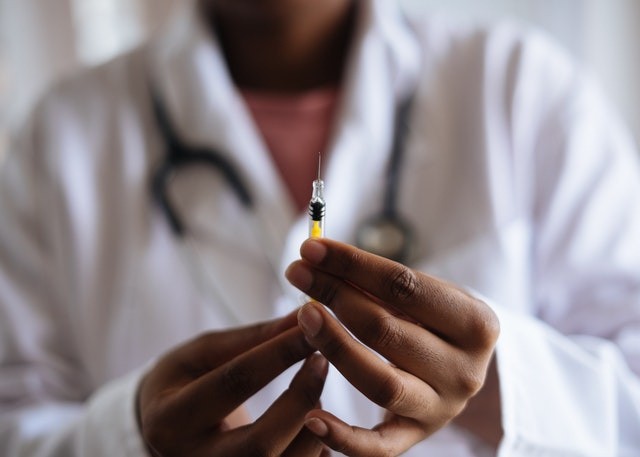Vaccine Hesitancy High Among Latinos, Experts Weigh in on Why

The COVID-19 pandemic has disproportionately affected people of color, particularly Hispanics and Latinos. But despite this, some factors still add to their vaccine hesitancy.
Most Hispanics and Latinos were open to getting vaccinated, taking up a sizeable share of the Kaiser Family Foundation's COVID-19 Vaccine Monitor. However, there remains some vaccine hesitancy among the group's young population.
NBC News reported that Puerto Ricans and Mexican Americans, the two largest groups of Latinos in the U.S., show more vaccine hesitancy.
There were some concerns in taking the vaccine as they believe it could potentially have negative long-term effects on them.
Experts Urge Understanding of Latino Community's Vaccine Hesitancy
Experts recognize that communication efforts on people of color will have to be changed or tailored for these groups. They urged the Biden administration to understand better the source of people of color's vaccine hesitancy to improve the nationwide vaccine rollout.
According to surveys conducted by researchers Gabriel Sanchez and Juan Peña of Brookings Institution, there was an "element of fear and mistrust" to the vaccines among Latinos. However, these fears manifest in different ways across Latino subgroups.
Aside from the long-term effects, Latinos were also concerned about the level of vaccine efficacy, side effects, and risks for Latinos. They also do not trust the Trump administration's vaccination efforts and had concerns about vaccination costs.
In October, a survey by the Latino advocacy group UnidosUS said at least 28 percent of Latinos were unlikely to get vaccinated against COVID-19 for these reasons.
Sanchez and Peña were also concerned about the high levels of vaccine hesitancy. "Given that Mexican Americans and Puerto Ricans are the two largest national origin groups among Latinos... this is a significant concern for the ability the reach the goal of herd immunity," they said.
There was also a gender gap in vaccine hesitancy, with more women unlikely to get vaccinated than men at 33 percent and 22 percent, respectively.
"This gender gap in the likelihood of vaccination identifies how important it will be to conduct more in-depth research with the Latino population," the researchers said.
Puerto Rican Doctor Voices Experience with Modern to Avoid Vaccine Hesitancy
Dr. Héctor Octaviani, a pediatrician at True Health in Sanford, told Click Orlando that he was aware of his fellow Latinos' concerns and how they are wearier of things concerning the pandemic.
To help ease the worries of fellow Latinos, he talked about his experience when he got his first shot of the Moderna vaccine last week.
"I haven't felt anything. That's not the way most people react to it. Some people have a little bit of soreness, tenderness in the arm," he said.
Related story : You May Have COVID-19 if Your Food Tastes Like This
Octaviani also shared the data known about vaccines and assured that there doesn't seem to be any long-term side effects.
Polls also showed that Latinos were less likely to get an emergency-use approved vaccine that did not pass the Food and Drug Administration's review process. Octaviani stressed that there is a reason a vaccine gets approved for emergency use.
"We need to immunize people. Traditionally diseases that are controlled by vaccination, you need to vaccinate 90% plus of the population to get the infection under control," he noted.
Subscribe to Latin Post!
Sign up for our free newsletter for the Latest coverage!
© 2026 Latin Post. All rights reserved. Do not reproduce without permission.














